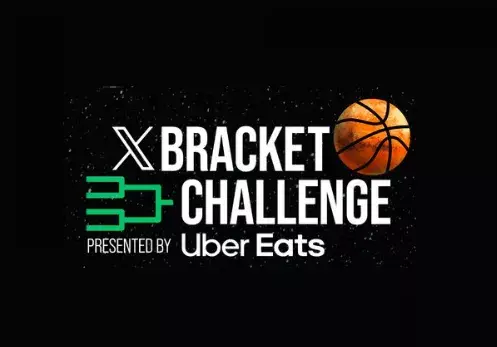When X unveiled its March Madness Bracket Challenge, partnered with Uber Eats, the buzz was explosive. The catch? The grand prize for anyone who can fill out a perfect bracket is a ticket to Mars aboard one of Elon Musk’s ambitious rockets. Aside from the excitement that screeches through the cosmos, this announcement raises eyebrows and skeptical questions about how seriously we should take such an outlandish incentive.
Who doesn’t fantasize about space travel? A coveted trip to Mars sounds like a golden ticket to a realm where science fiction meets reality. However, this “fantasy” juxtaposed against Musk’s tendency to oversell and under-deliver begs a deeper analysis. Yes, Musk is a visionary, a pioneer in the tech world—no one can deny his accomplishments. But translating dreams into feasible plans is another beast entirely, and this Mars trip feels more like a carrot dangled before a hapless rabbit than a tangible reward.
Lost in Space: The Reality of SpaceX’s Achievements
Many devoted fans laud Musk as if he’s the modern-day Daedalus, weaving beautiful myths of interplanetary exploration. However, the flight from Earth to Mars is not just an intriguing headline; it’s an engineering mountain that has yet to be climbed effectively.
Musk’s Starship project has experienced a string of explosive setbacks; the company seems to be perpetually at the drawing board, testing prototypes and dreaming big while the finish line remains perpetually out of reach. Musk’s track record is filled with grand promises: full self-driving cars by next year, massive infrastructure projects, and even a city on Mars. The grandiose plans often lead to a dismal reality where the next big deadline slips further away. While it’s commendable to dream, there’s a fundamental difference between ambition and actionable reality.
The Prize That Could Be—But Probably Won’t Be
Amid the glitz of winning a Mars ticket is another reality: if there’s no perfect bracket—a scenario that occurs as often as a blue moon—the next best reward is a cash prize. The financial incentives—$100,000 for close predictions and even four additional $10,000 prizes—seem more grounded in reality than the Martian dream. The cash prizes draw a clear line between fantasy and feasibility, making it much more attractive for participants who can’t hold their breath for a ticket to Mars.
And therein lies the crux of X’s marketing strategy. By entwining a mythical Mars ticket into the fabric of a fun yet chaotic competition like March Madness, they generate buzz while appealing to a largely youthful demographic entrenched in dreams and escapades. It’s a gambit that leans into both hope and skepticism, keeping players engaged while simultaneously measuring how far they are willing to chase a chimera of interstellar travel.
The Culture of Belief in Technology
Elon Musk’s ability to captivate the collective imagination is unparalleled, but it also raises pertinent questions about our relationship with technology and our propensity for believing in lofty ideas over grounded goods. The culture around Musk often glorifies the future he’s sketching, blinding many to the reality of the present state of affairs. Instead of rigorous scrutiny, many opt for a cheerleading role in the increasingly blurry line between imagination and actual progress.
Ultimately, X’s Bracket Challenge, with its fantastical allure of celestial travel, clears a path for introspection about how we define success, dreams, and whether or not we place undue faith in visionary figures. The challenge may be exciting and draw people in, but when the dust settles, would the masses really prefer a ticket to Mars or landing a solid cash prize that yields real rewards?
With everything at stake—dollars vs. daydreams—the choice becomes less about fantasy adventure and more about pragmatic desires, daring us all to reflect on what we truly value in this wild, experimental world.

